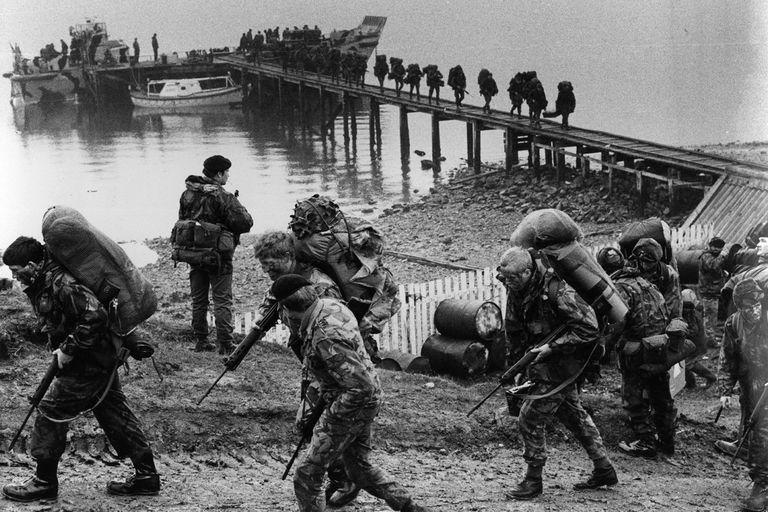The United Kingdom is a union of individual countries of England, Scotland, Wales and Northern Ireland. The United Kingdom is a constitutional monarchy and its reigning monarch, Queen Elizabeth II, is The Head of state of 15 other Commonwealth realms, which includes Australia, Canada, New Zealand and Jamaica.
In the 19th Century, Great Britain was the world’s dominant industrial and maritime power, The Union was a huge role in the development of modern democracies.
The United Kingdom played a major role in the history of the world and today’s modern world was influenced by the united kingdom. taking a leading role in developing democracy and in advancing literature and science.
CHRONICLE EVENTS & HISTORICAL TIMELINE |
| 1801 |
| An act of Union placed Ireland under British Parliament control, the United Kingdom formed by a union of the kingdoms of Great Britain and Ireland. |
| 1805 |
| British defeated Napoleon’s French fleet at Battle of Trafalgar |
| 1815 |
| The Defeat of Napoleon’s French Empire, Britain becomes the pre-eminent imperial power. |
| 1812 – 1815 |
| War of 1812 |
| 1820 |
| King George III died; George IV became king |
| 1829 |
| Roman Catholic Relief Act passed, gave political rights to Catholics for loyalty to Protestant monarchy |
| 1830 |
| King George IV died; succeeded by brother, Duke of Clarence, as King William IV, |
| 1833 |
| Factory Act banned child workers under nine |
| 1837 |
| King William IV died; his niece crowned Queen Victoria of Britain |

1854 – 1856 |
| Britain victorious in Crimean War |
| 1863 |
| First underground railway in London opened |
| 1869 |
| Suez Canal opened |
| 1870 |
| Education Act passed |
| 1872 |
| Ballot Act passed – voting now secret |
| 1877 |
| Queen Victoria declared Empress of India |
| 1896 |
| Britain won three gold medals at first modern Olympic Games in Athens |
| 1899 – 1902 |
| Boer War took place; Britain defeated South African Dutch settlers |
| 1901 |
| Queen Victoria died; son Edward VII new king |
| 1904 |
| Entente Cordiale with France marks Britain’s return to European security treaties. |
| 1908 |
| Introduction of pensions |
| 1910 |
| Edward VII died, son George crowned King George V |
| 1914 |
| An outbreak of First World War |
| 1918 |
| World War I ended, over several hundred thousand brits, died |
| 1921 |
| Ireland granted independence by Ango-Irish Treaty |
| 1922 |
| The United Kingdom became known as United Kingdom of Great Britain and North Ireland |
| 1924 |
| The Television is Invented by Scottish Engineer, John Logie Baird |
| 1928 |
| Women aged 21 received right to vote |
| 1939 |
| World War II Begins |

1940 |
| Winston Churchill becomes prime minister |
| 1944 |
| Allied troops invade France from Britain on D-Day, 6th June and begin to fight their way towards Germany. |
| 1945 |
| World War II ended |
| 1948 |
| National Health Service is established. |
| 1949 |
| The UK becomes a founder member of Nato. |
| 1952 |
| Britain tested a nuclear bomb |
| 1966 |
| England won Football World Cup |
| 1973 |
| The UK joins the European Economic Community. |
| 1979 |
| The Conservative politician Margaret Thatcher becomes prime minister. She begins to introduce free-market policies. |

1982 |
| Argentina invades the Falklands Islands in the South Atlantic. The UK dispatches a task force. The Falkland Islands return back to UK Control |
| 1994 |
| Channel Tunnel opened rail link between Britain and rest of Europe |
| 1998 |
| Good Friday Agreement on a political settlement for Northern Ireland is approved by voters in the Republic of Ireland and Northern Ireland. |
| 2011 |
| Prince William married Catherine Middleton |
| 2014 |
| A referendum on Scottish Independence held in Scotland. 85% of voters cast ballots. Pro UK side wins with 55% of the vote. |
| 2016 |
| The United Kingdom Voted to leave European Union |
| 2018 |
| Royal Wedding, Prince Harry Marries Meghan Markle |
Enjoyed this post? Save it for later on Pinterest! Share the Love



